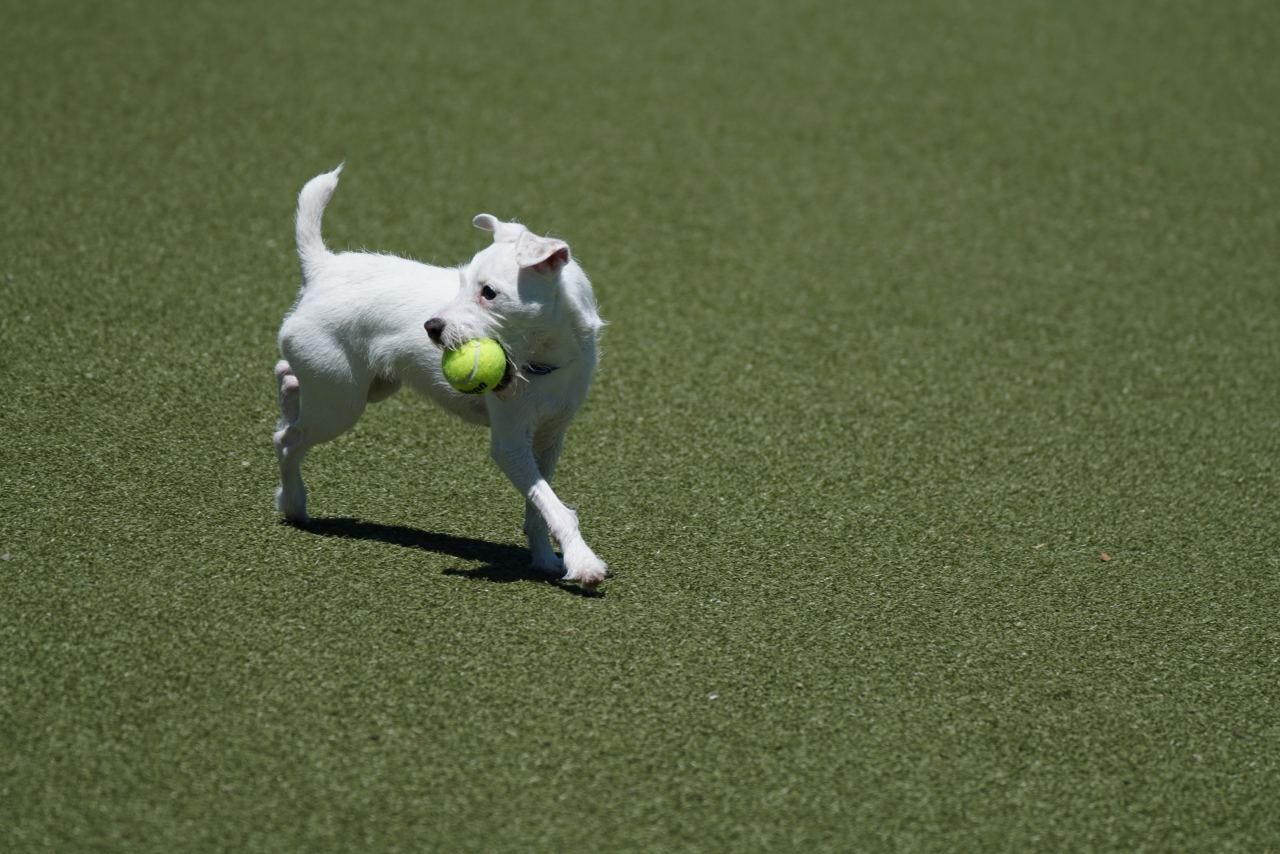Dog Parks Aren’t That Great
Dog parks are among the fastest-growing park amenities nationwide, but they have significant downsides.

In The Dog Park Is Bad, Actually, Sassafras Lowrey debunks the current narrative about dog parks:
Especially for urban dogs that don’t have backyards to exercise in, dog parks can sound like a great idea. There is nothing natural, however, about dogs that aren’t familiar with one another to be put in large groups and expected to play together. Many of us just accept the assumption that dog parks are good places to socialize a dog, but that may not be the case.
The socialization myth
Nick Hof, a certified professional dog trainer and chair of The Association of Professional Dog Trainers, explained that in terms of canine behavior, the term “socialization” isn’t just dogs interacting or “socializing” with other dogs, but rather, “the process of exposing young puppies under 20 weeks to new experiences.”
“This helps them have more confidence and adapt to new situations,” Mr. Hof said.
Though socialization is critical for the healthy development of puppies, the dog park is not where you want to bring your puppy to learn about appropriate interactions with other dogs, Mr. Hof added.
“Dog parks are not a safe place to socialize a puppy under 6-12 months old,” he continued. “During our puppy’s early months, they are more sensitive to experiences, so a rambunctious greeter at the park may be enough to cause our puppy to be uncertain of all dogs,” Mr. Hof explained.
The goal for socializing young puppies is to ensure they have only positive interactions, and to avoid any overwhelming or frightening interactions. Instead of taking puppies to a dog park for socialization, Mr. Hof encourages owners to attend puppy classes with their dog to meet age-appropriate playmates.
Socialization with older dogs is a bit more challenging, because in a behavioral sense, older dogs have already had all of their formative socialization experiences. Dog guardians generally mean well when they bring a shy dog to the dog park with the intention of giving that dog positive interactions with other dogs. Unfortunately, this can backfire; a dog who is nervous or uncomfortable is more likely to be easily overwhelmed in a park setting, which can lead to dog fights or a long-term fear of encountering other dogs. A park setting also allows dogs to pick up bad habits from one another, and is definitely not a place you want to bring a dog who is under-socialized.
[…]
Injuries
One of the biggest dangers of dog parks is that they often don’t have separate play enclosures for large and small dogs, or when they do, owners can choose to disregard those spaces. Even without meaning to, a large dog can easily cause serious injury or even kill a smaller dog.
From minor scuffles to serious incidents, injuries are common at dog parks. Bite wounds are common, even from rough play. Even if the wound seems small, “seek veterinary care immediately,” Dr. Loenser advised.
I am not a dog owner, so I am going to keep my own council, but I am posting this as a public service.
